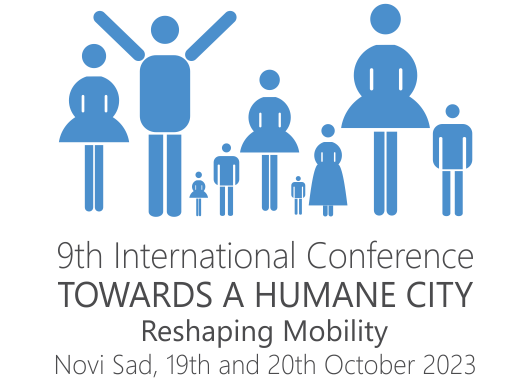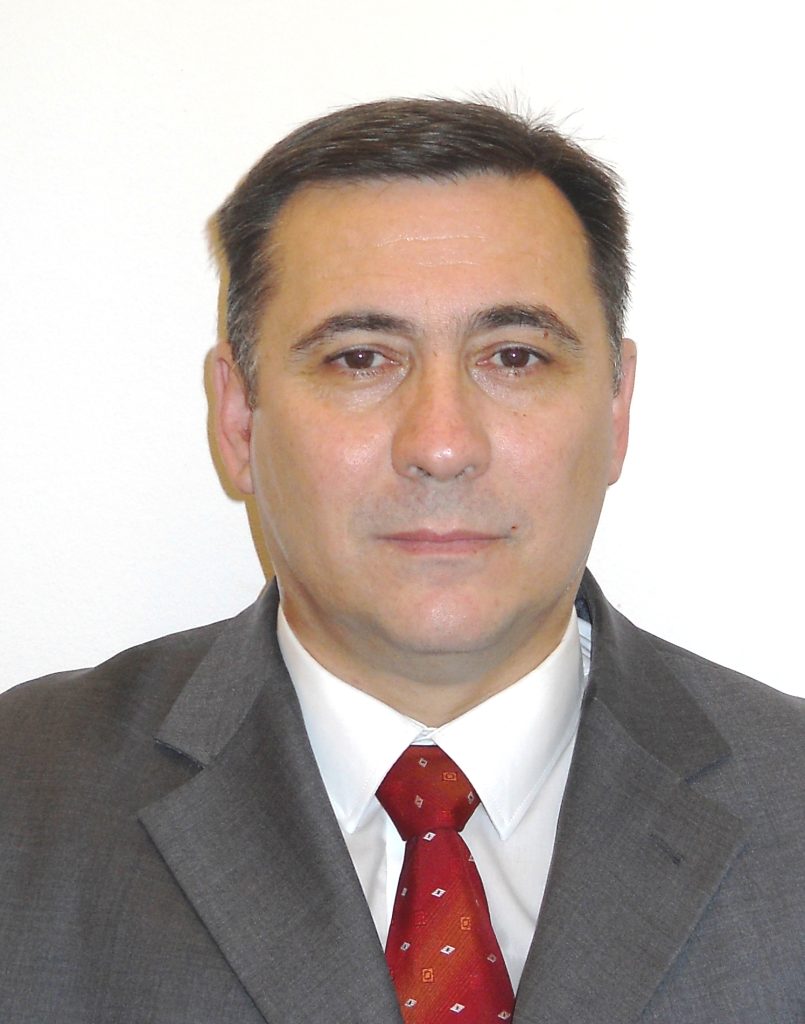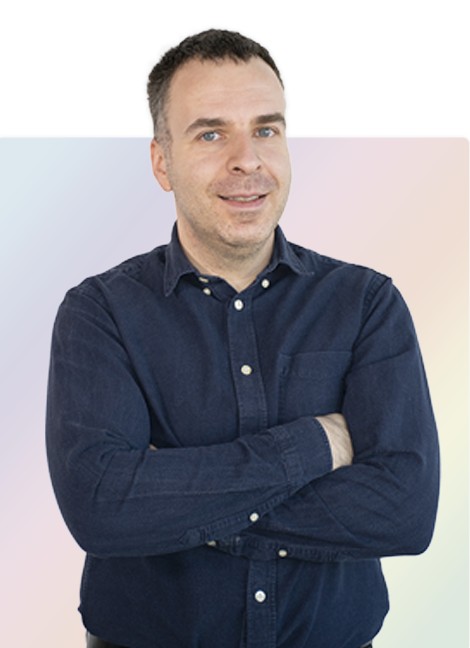Deni Krevešić
GLANVILLE CONSULTANTS LTD, LONDON, UK
DRIVING TOWARDS THE FUTURE-The impact of connected and autonomous vehicles on transport planning
This paper focuses on the potential impact of emerging vehicle technologies, particularly connected and autonomous vehicles (CAVs), on various aspects of transport planning, including active travel, road infrastructure, parking and public transport. CAVs are the future of transportation, and they are designed to make roads safer, reduce traffic congestion and improve mobility service. The paper examines the implementation of Level 4 and 5 autonomous vehicles in public transport across the UK, summarising the initial findings, benefits and challenges during the early stages of deployment. A holistic approach is taken to evaluate CAVs’ future impact on highway design, parking management, transport modelling, changes in travel behaviour and safety. The analysis highlights how CAVs affect highway design, parking management, and transport modelling, illustrating the significance of these factors in the overall planning process. Considering available data, this paper highlights critical issues that need to be addressed to maximise the benefits of this innovative technology, such as developing transport models that predict traffic patterns and travel behaviour in a real traffic environment. In addition, it is essential to examine the role of CAVs in reshaping road infrastructure, such as lane allocation, traffic signs, communication markers, signal timings, and parking facilities, optimising street space utilisation while maintaining accessibility for all users. Ultimately, the paper seeks to provide a comprehensive understanding of how CAVs could transform various aspects of transport planning, offering insights that could help decision-making processes and promoting sustainable growth.
BIOGRAPHY
Deni Krevesic is a Chartered Transport Planning Professional (CTPP) who works as the Principal Transport Planner at Glanville (UK) and holds membership in the Chartered Institute of Highways and Transportation (CIHT). With a career spanning over a decade and a portfolio of over 100 high-profile projects that have left their mark in many different places in the UK and worldwide. Deni began his career at AECOM, where he worked on an impressive array of high-profile projects, including the Heathrow Airport, Cycle SuperHighways London, Dubai Expo 2020, and the Rio Olympic Games. In 2021 he moved to Cundall, where he worked across a diverse range of UK projects, including High Speed 2. Deni joined Glanville in 2023, where he undertakes the role of advising and supporting clients through every stage of their projects. From initial appraisals and feasibility assessments to the masterplanning of proposals, the planning application process, and post-planning phases. Leveraging his extensive experience and innovative mindset, Deni has made significant contributions to a range of projects, including infrastructure, education, residential, and mixed-use developments. Deni is passionate about implementing innovative solutions and promoting sustainable development in the transportation industry, which aims to enhance the level of transportation services.
Marko Šoštarić
UNIVERSITY OF ZAGREB, FACULTY OF TRANSPORT AND TRAFFIC SCIENCES, ZAGREB, CROATIA
APPLICATION OF NEW TRANSPORTATION SOLUTIONS AND TECHNOLOGIES IN THE REPUBLIC OF CROATIA
The development of new technologies has opened numerous possibilities for improving the transport system and increasing its safety and sustainability. Recently, significant transportation projects have been completed in the Republic of Croatia, which are important not only for Croatia but also for the wider region. In addition to significant infrastructure projects, such as the Pelješac Bridge, numerous IT projects have also been implemented. One of the most important projects is the establishment of a national access point and central national traffic monitoring and management center. In the future period, there are plans for significant improvements to the transport system using the latest technologies. Soon, the introduction of a new toll collection system on all motorways is planned. With the new distance-based Tolling System, payments will be made completely contactless using DSRC technologies and license plate recognition technology. In the field of urban mobility, the implementation of the entire ITS system for traffic management in Split, the second largest city in Croatia, has begun. The Split ITS system consists of several interconnected modules, with the most important ones being the central traffic center, networked intelligent traffic lights, and the public transportation priority system. The entire system is based on the latest technologies, such as artificial intelligence and machine learning.
BIOGRAPHY
Marko Šoštarić is an Associate Professor at the Department of Transport Planning, Faculty of Transport and Traffic Sciences, University of Zagreb, and the Dean of the Faculty.
He is a charted transport engineer and road safety auditor. In his 19-year career, he has participated in the implementation of about 20 different scientific research projects and has prepared over 200 transportation studies, projects, and reports. Over the past several years, as team leader, he has worked on many sustainable urban mobility projects co-financed by EU funds. He has also worked on feasibility studies and strategic environmental impact assessments for the transport system.
He regularly publishes research results and project outcomes in scientific and professional journals and presents them at conferences. He has published about fifty scientific and professional papers in journals and conference proceedings.
At the Faculty of Transport and Traffic Sciences, University of Zagreb, he teaches courses in Transportation Technological Design, Management of urban transport systems, Ecology in transport, Basics of transport engineering, and Basics of transport infrastructure. He is also a guest lecturer at other universities in Croatia and abroad. He has supervised numerous undergraduate and graduate theses and one doctoral dissertation.
Gradimir Stefanović
TRANSPORT CONSULTANT, LONDON, UK
BUS RAPID TRANSIT Technology – Review and developing possibilities
Presentation will analyze and cover the following subjects:
• BRT key principles as a first level of rapid transit technology
• Basic principles in developing BRT
• Review of BRT development in the World and recent development in Europe
• Critical elements for BRT interoperability
• Development obstacles
• Complexity of decision justification process and understanding/accepting high speed technology without expensive capital cost
• Possible implementation in Western Balkan Region.
BIOGRAPHY
Started carrier in Belgrade in 1976. From 1992 Mr Stefanovic is based in London (United Kingdom) as independent Urban transport consultant advising clients in UK and worldwide.
He is active member and founder of UITP Light Rail Committee from 1978. Recently he was nominated as UITP Ambassador for his contribution and activities related to the promotion of UITP. He was co-author in the UITP Working group for Light Rail and BRT Guidelines (2004) as well as Leader of the WG for LRT Modernisation in CEEC Guidelines (2011).
Mr Stefanovic served his clients in Norway, Russia, Netherland, India, Serbia, Bosnia and Herzegovina, Ukraine, Egypt, Saudi Arabia and UAE mostly in the field of urban public transport, integration of various mode of transport, development of BRT and LRT, optimization of interchange points, terminals and urban mobility management. He advised ADA in development of Riyadh Metro. He was team leader in WB project “Modernization of PT in 14 cities in Russia”, as well as Project Manager in WB project “Modernizing Heliopolis Tram into modern LRT system”. He was also active as UITP Trainer, performing lessons in Brussels, Abu Dhabi, Lagos, Kuala Lumpur, Dar es Saalam, Jeddah, in the field of BRT, LRT and Metro.
In Skopje, Gradimir Stefanovic performed Technical due diligence for CNG buses procurement by EBRD (2018), assist in preparation of Conceptual design for BRT line 1 and being a team leader for ongoing Study for bus network restructuring (because of introduction of BRT system).
In Serbia Gradimir Stefanovic was active for a long period in development of metro, suburban railways, bus renewal as well as introduction of CNG and E-buses for the Novi Sad city.
Slobodan Mišanović
CITY PUBLIC TRANSPORT COMPANY’’BELGRADE’’, BELGRADE, SERBIA
E-MOBILITY DEVELOPMENT STRATEGY IN PUBLIC URBAN TRANSPORT-Introduction of articulated electric buses
Electric buses have a steady trend of increasing usage in many cities in Europe and the world. In the previous period, electric buses with a standard length of 12m were the most represented, while articulated buses of 18m had a lower representation due to poorer technical and operational performance (lower passenger capacity, limited autonomy of movement, long charging time at the depot or terminus…) compared to conventional articulated buses. With the development of new generations of electrical energy storage systems (batteries, supercapacitors) and fast charging systems using high-power chargers, articulated electric buses have become increasingly competitive with conventional buses. In the coming period, one of the E-mobility development strategies related to public urban transport is the introduction of articulated electric buses instead of conventionally driven buses, primarily on central city lines as well as on the lines of the BRT system.
The paper will present the results of the trial operation of the Higer UC 18 articulated electric bus on city line number 31 (Studentski trg-Konjarnik) in Belgrade, which was carried out in October 2022, from the aspect of energy efficiency and environmental advantages. Through a case study of the replacement of articulated buses with diesel engines currently operating on line no. 31 with articulated electric buses, an analysis of the economic feasibility of introducing articulated electric buses into operation will be carried out.
BIOGRAPHY
Slobodan Misanovic, Ph.D., has been employed at JKP GSP Beograd (City Public Transport Company’’Belgrade’’) since 1994, where he performs the company’s project manager duties. He defended his doctoral dissertation “Energy and environmental performance of electric buses in the passenger transportation system” in 2021. The field of work is focused on: the application of alternative drive systems for buses, especially for E-buses, problems of energy efficiency and the impact of vehicles on the environment in the public urban transport system, techno-economic analysis of the bus subsystem, modeling and simulation of bus operation.
Since 2005, he has been a permanent member of the UITP Bus Committee (International Association for Public Transport, Brussels) During 2015-2016, he played a leading role in the implementation of the project of introducing the first-line EKO 1 in Belgrade, which operates with 5 fully electric buses, as well as in 2022, when the second E-bus line EKO 2, which operates with 10 E-buses were introduced. He participated in programs: “Hybrid User Forum Bus-section” (2011-2014) EC FP 7, “Clean Fleets”, EC FP 7 (2011-2015), ZeEUS-User group, EC (2015-2018). Consultant for the City of Kragujevac on the E-GUTS (Electric green urban transport system) project 2018-2019. years. He played an active role in the development of the SORT (Standard on road test) methodology for measuring bus fuel consumption, which is the official methodology in the European Union and supports Directive EC 2009/33. He had notable participation at the “Hybrid Electric Vehicle Symposium-2019” organized by SAE-International, which was held in Anaheim (Anaheim, California-USA) from February 19 to 21, 2019.
In particular, the extensive international experience and established cooperation with the world’s largest companies for public urban transport, bus manufacturers, and vehicle testing centers should be emphasized. He completed his professional training through technical visits to over 30 largest companies: TMB Barcelona, TfL London, EMT Madrid, SBB Stuttgart, ATM Milano, RTA Dubai, LPP Praha, Shenzhen Bus Company, Mosgotrans Moscow, RATP Paris, MOVIA Copenhagen, CUTCSA Montevideo, IEET Istanbul, Solaris bus&Coach S.A, Volvo, Higer, BYD, “Applus IDIADA”, Belicon Institute Landshut, CALSTART Institute Pasadena CA-USA, CIAH Belgrade…) where experiences in exploitation, production, and testing of buses for city transport.
He has published over 40 scientific and professional papers.
Milan Bjelica
UNIVERSITY OF NOVI SAD, FACULTY OF TECHNICAL SCIENCES NOVI SAD
Autonomous Vehicles and Public Safety – Technical and Legal Debates
.
BIOGRAPHY
Prof. Dr. Bjelica is an Associate Professor at the Faculty of Technical Sciences, University of Novi Sad; Functional Safety instructor at the University of California San Diego, CA, USA and a CEO of NIT Institute LLC. During his career he was conducting research and innovation activities for various computer-engineering sectors, with a focus on consultancy and training in the fields of system safety, functional safety, automotive engineering and consumer electronics. During his career, he consulted companies in the automotive industry (ZF Germany, TTTech Austria, Qualcomm Automotive USA, Daimler Germany) and also other companies in consumer electronics, industrial machinery and computing domains. He is a frequent participant and a speaker at major industry events worldwide.
Dr. Bjelica holds a Ph.D. degree in computer engineering from the University of Novi Sad, as well as the Academic safety engineer degree from FH CampusWien / Vienna Institute for Safety and Systems Engineering (Austria).





